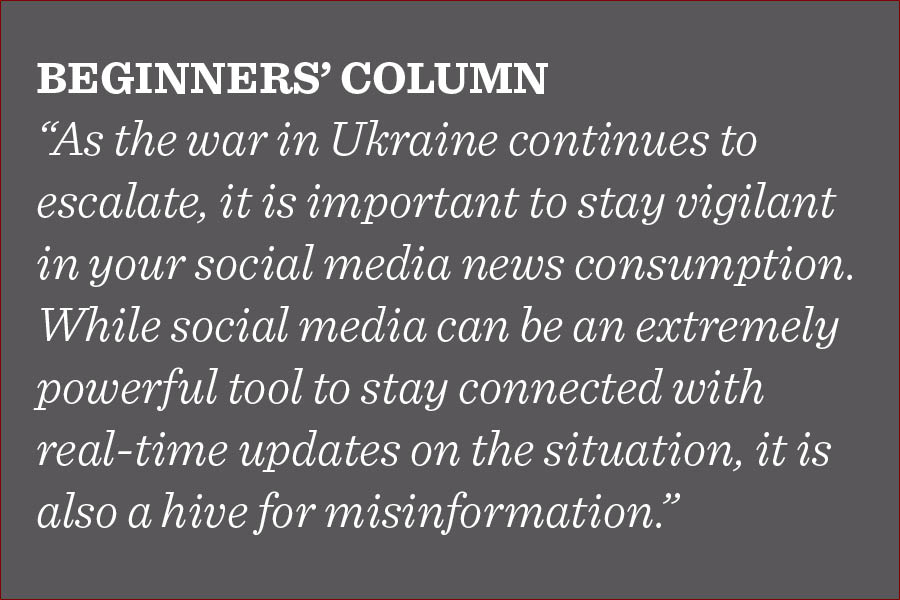Opinion: Social media users should combat misinformation of Ukrainian invasion
Midway Staff
Misinformation on social media must be countered, argue a group of beginning journalists.
March 7, 2022
Misinformation on social media has exploded in recent years and has only been inflamed by the Russian invasion of Ukraine. Falsified images and video claiming to depict on-the-ground events in Ukraine in particular have gone viral.
In response, social media users should recognize their role in, and take steps to combat, the spread of misinformation pertaining to the Russian invasion of Ukraine.
Because political posts often contain strong biases toward the author’s political views, users should be aware of a source’s agenda and avoid reposting and sharing potentially biased media as objective fact. Russian state media has used social media to spread propaganda as a way to justify an invasion.
Even well-meaning social media users can unknowingly contribute to this problem, and everyone should be on alert. From an image that claims to depict Russian bombings in Ukraine but is actually an image of Israeli air strikes on Gaza, to a video that supposedly depicts a fighter pilot battle but is actually video game footage, social media is full of misleading information about this crisis.
When encountering misinformation, it is not enough just to report it and move on — you should reach out to friends and family with evidence debunking misleading posts they may have seen. While reporting misinformation can lead to posts being removed, it is not always a quick process. In the 24 hours it can take for Twitter to receive a report, even more people can see the misinformation, further warping their opinions on the event.
As the war in Ukraine continues to escalate, it is important to stay vigilant in your social media news consumption. While social media can be an extremely powerful tool to stay connected with real-time updates on the situation, it is also a hive for misinformation. When consuming news on social media, take the time to do three key steps: verify sources, consider the source’s agenda and debunk misinformation.
This represents the opinion of students in Period 3 Beginning Journalism: Olivia Adams, Chloe Alexander, Toshiro Chin, Kiran Collins, Evan Lok, Sandra Mordi, Milo Platz-Walker, Katie Sasamoto-Kurisu, Victoria Washington.




























































